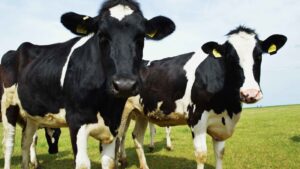While learning about our planet, a significant aspect to understand is that there are numerous links between the environment and the economy. This article will guide you through some of the key facts in environmental economics.
First of all, what does the term “environmental economics” mean?
Economics is the study of human choice, and sheds light on the choices that individual consumers and producers make with respect to numerous goods, services, and activities, including those made respect to environmental quality. Environmental economics is a subfield of economics that applies the values and tools of macroeconomics and microeconomics to allocate environmental resources more efficiently.
So, what does an environmental economist do?
Environmental economists research the economics behind environmental issues such as renewable energy use, construction of new hydroelectric power plants, etc. by analyzing data, researching trends, and evaluating them. Based on their analyses, they aim to develop cost-effective and sustainable policy recommendations, which they communicate to policymakers through reports and presentations.
While environmental economist jobs vary, here are some of the typical job duties they execute:
- Provide reports to stakeholders on economic performance and outcomes
- Develop reports on economic findings and present them to policymakers
- Look for economic incentives and see if they can change them so that people behave differently toward environmental concerns
- Analyze current ecological and economic trends and cycles to relay information & hypothesize future trends
Where does an environment economist work?
Majority of environmental economists are employed in either the federal or state government or in professional, scientific, and technical services. As of now, larger environmental consulting firms are also hiring economists to help them determine the financial and environmental costs of development projects.
Environmental economists also have societies and professional organizations that they are a part of. For instance, the Association of Environmental and Resources Economists (AERE) publishes journals and holds conferences. There’s also a job board and membership directory. Another association for economists in the U.S. is the American Economic Association (AEA). It publishes academic journals, organizes the Econlit database, offers webcasts, maintains a resource page with links to economic data and resources, and more.
Citations:
Brown, Jennifer L. “Environmental economics.” Britannica, www.britannica.com/
topic/environmental-economics.
“Environmental Economics.” United States Environmental Protection Agency,
www.epa.gov/environmental-economics.
“Environmental Economist Overview.” ZIPPIA The Career Expert, www.zippia.com/
environmental-economist-jobs/.
“Global Forum on Environment and Economic Growth.” OECD, www.oecd.org/economy/
greeneco/global-forum-on-environment-2016.htm.
“What is an Environmental Economist?” Environmental Science,
Featured image: stock.adobe.com
www.environmentalscience.org/career/environmental-economist.



Helpful information. Lucky me I discovered your web site accidentally, and
I am stunned why this coincidence did not happened earlier!
I bookmarked it.
Also visit my web blog Royal CBD
If you are going for best contents like me, simply go to see
this web site all the time since it provides feature contents, thanks
Also visit my page :: Royal CBD